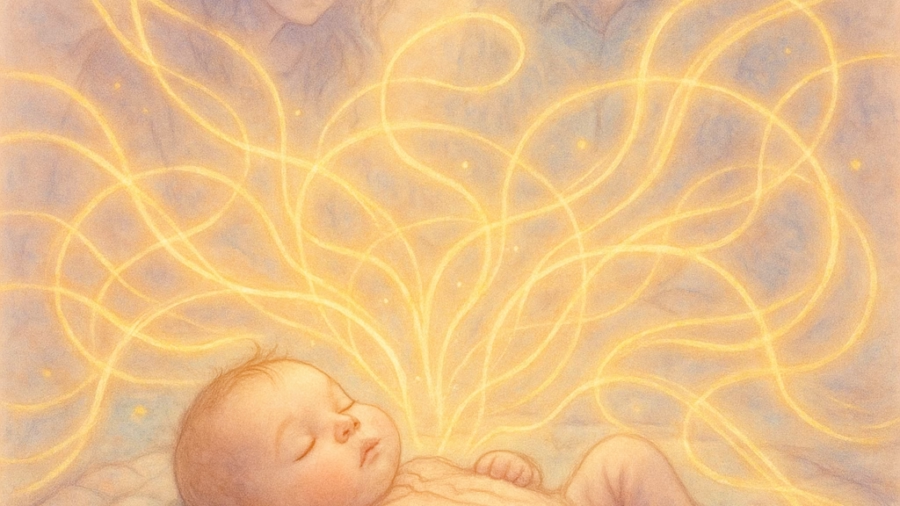The whispers started long before the baby did. Leo and Maya, eagerly awaiting their first child, would pass the long evenings on the sofa, scrolling through baby names and nursery rhymes. The “Monday’s Child” rhyme was a particular favourite, an almost magical forecast of their future.
“Imagine if she’s born on a Friday,” Maya would say, resting her hand on her swollen belly. “‘Loving and giving.’ That is all I want for her.”
“And what if she’s a Sunday’s child?” Leo would reply, a twinkle in his eye. “’Fair and wise and good and gay’—she will be a little ray of sunshine for us.”
They would laugh, never for a moment thinking the old verse held any real power. But as the due date drew near, a curious superstition began to settle in. They found themselves hoping for a Tuesday or a Friday, secretly dreading a Wednesday.
Elara arrived on a quiet, grey Wednesday morning. The moment Maya held her, all thoughts of rhymes and omens vanished, replaced by an overwhelming tide of love. Yet, in the weeks that followed, the verse seemed to cling to their every observation.
Elara was not a loud, boisterous baby. She was quiet, observant, and often wore a serious, almost contemplative expression. When she cried, it was a soft, mournful sound, not a bellow. Maya would soothe her, whispering, “Oh, my poor little Wednesday’s child, what ails you?” Leo, too, would interpret her quiet moments as a sort of innate “woe.” They were not cruel; they were simply seeing what they expected to see. They had read an article that mentioned how ancient beliefs about birth timing, like those of the Chinese Year of the Dragon, could shape a child’s destiny. The article explained that it was not a cosmic force at work, but rather the parents’ own beliefs that led them to invest more in their children’s education, turning the prophecy into a reality. They did not fully grasp the lesson at the time, only the fascinating premise.
A few months passed, and Elara remained their solemn, little Wednesday. One afternoon, a friend, a psychological scientist, visited. As Elara lay on her playmat, she watched Leo make a series of goofy faces. He twitched his eyebrows, stuck his tongue out, and wiggled his ears. Slowly, a tiny smile crept onto Elara’s face, a hesitant curve that grew into a full-on, gurgling, joyous laugh that filled the room.
It was a sound so pure and unadulterated that it stopped Leo and Maya in their tracks. It was the furthest thing from “woe.”
Their friend, noticing their surprise, gently said, “She’s a beautiful baby. But I have noticed you two seem a bit preoccupied with what day she was born on. You know, that rhyme is not a prediction. It’s an old belief that parents, subconsciously, can make true.”
The words hung in the air, a bell tolling with sudden clarity. They remembered the article they read months ago, the one about parental beliefs shaping a child’s academic achievement. It was not the day of the week that shaped Elara’s personality. It was their own perspective, their own loving, but misguided, expectations.
That night, they held Elara close. “Hello, Elara,” Leo whispered, his voice soft. “My little Friday’s child. My little Sunday’s child. My brave, curious, little Monday’s child. My own wonderful, one-of-a-kind Elara, born on a Wednesday.”
From that day forward, they chose to see the grace, the wisdom, and the joy. They saw the whole picture, not just a single, self-fulfilling thread. And in doing so, they found not a child of woe, but a child full of all the wonders the world had to offer.

